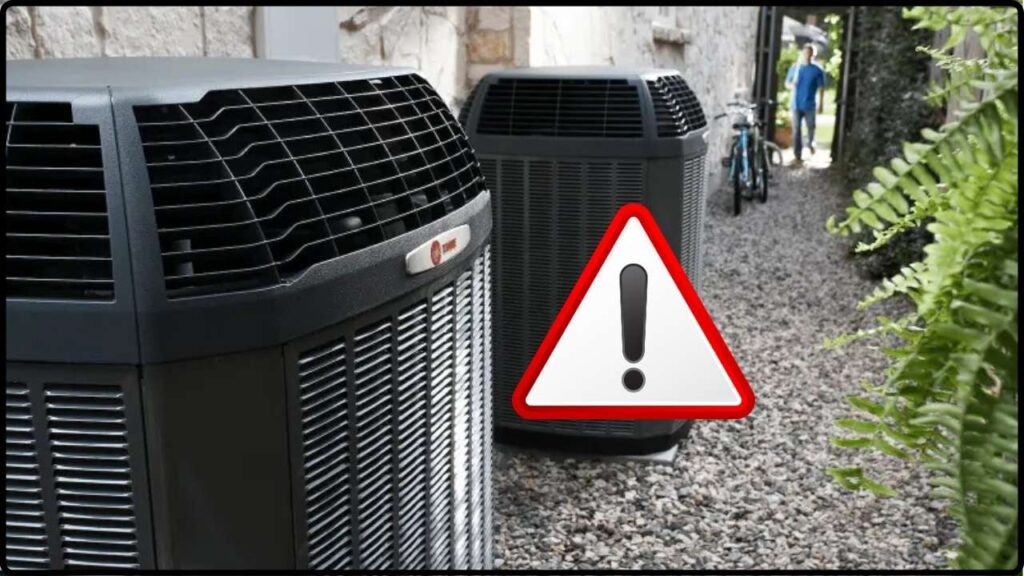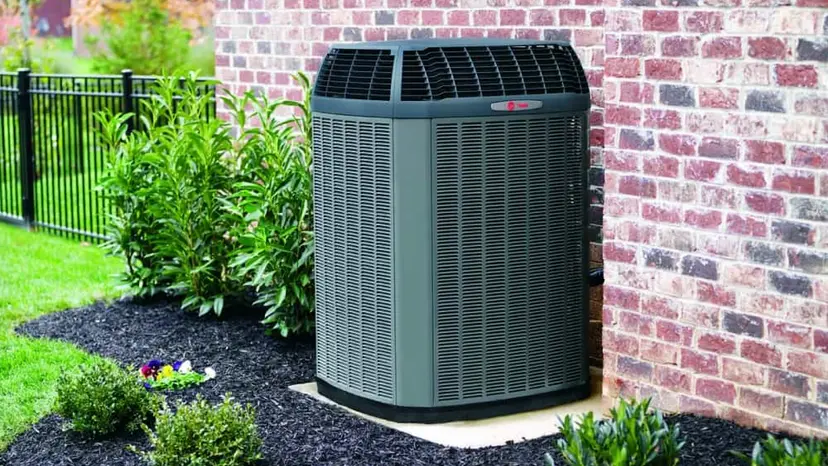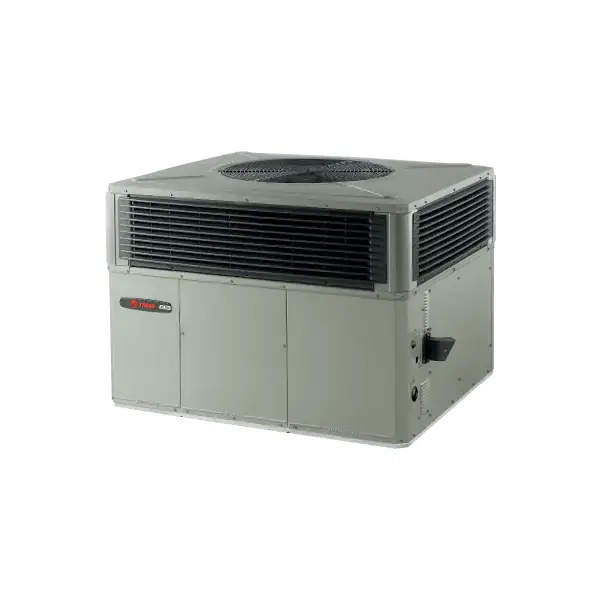Trane Recalls Gas-Electric Units: Trane U.S. Inc., a major manufacturer of heating, ventilation, and air conditioning (HVAC) equipment, has issued a voluntary recall of nearly 4,800 gas-electric packaged HVAC units sold under the Trane and American Standard brands. The recall, issued in cooperation with the U.S. Consumer Product Safety Commission (CPSC), warns that the affected units pose a serious fire hazard due to a fuel gas valve malfunction that can lead to unintended gas leaks.
The issue stems from a defect in the ignition control board, which can send signals to open the fuel gas valve even when the unit is not operating in heating mode. This malfunction could result in the accumulation of unburned gas, increasing the risk of explosion or fire. One gas leak incident has already been reported, although no injuries or property damage have been confirmed to date.
Trane Recalls Gas-Electric Units
This recall underscores the importance of vigilance in home safety and regular equipment maintenance. While the number of affected units is relatively small compared to Trane’s total market footprint, the risk of gas leaks and fire is significant enough to warrant immediate consumer action.

| Key Detail | Information |
|---|---|
| Manufacturer | Trane U.S. Inc. (also sold under American Standard) |
| Recall Date | July 3, 2025 |
| Products Affected | Five models of two-stage gas-electric packaged HVAC units |
| Model Numbers | 4YCZ5024F1060A to 4YCZ5048E1115A |
| Units Recalled | Approximately 4,790 |
| Date Sold | January 2024 – March 2025 |
| Retail Price Range | $8,250 to $12,900 |
| Hazard | Fuel gas valve may open unexpectedly, causing gas leaks and fire risk |
| Reported Incidents | 1 gas leak incident; no injuries or property damage |
| Safe Functions | Cooling mode may still be used |
| Immediate Consumer Action | Turn off heating mode; check model/serial; contact Trane |
| Remedy Offered | Free inspection and replacement of ignition control board |
| Contact Information | Trane Recall Hotline: 800‑889‑0129 (Mon–Fri, 8am–6pm ET) |
| Recall Program Type | CPSC Fast Track Voluntary Recall |
| Where to Check Recall Info | www.trane.com/recall, www.americanstandardair.com/recall, www.cpsc.gov/recalls |
| Who Should Act | Homeowners, landlords, property managers, HVAC contractors |
Background on the Recalled Products
The recall involves five models of two-stage gas-electric packaged units. These systems are commonly used in both residential and commercial buildings. The units are designed to combine air conditioning and heating functions in a single cabinet, which is typically installed outdoors. The two-stage feature allows for more efficient temperature control by operating at both low and high capacities depending on demand.
These units were sold between January 2024 and March 2025 through authorized Trane and American Standard dealers across the United States. Prices ranged from approximately $8,250 to $12,900, depending on model size, region, and installation costs.

Specific Models Included in the Recall
The following model numbers are affected:
- 4YCZ5024F1060A
- 4YCZ5030E1075A
- 4YCZ5036E1100A
- 4YCZ5042E1110A
- 4YCZ5048E1115A
To determine if a unit is part of the recall, consumers should locate the model and serial number printed on a data plate on the back panel of the outdoor cabinet. The serial number includes manufacturing dates, which can further help verify if a specific unit falls within the recall scope.
Technical Details of the Malfunction
According to Trane and CPSC, the malfunction involves an issue in the unit’s ignition control board. This component is responsible for managing signals between the thermostat, gas valve, and burner assembly. In the defective units, a programming or electrical fault can cause the control board to energize the gas valve at improper times. If this occurs when the igniter is not functioning—or if the unit is completely off—natural gas may be released into the cabinet or surrounding air.
This unintended release creates a flammable environment. Should a spark or ignition source become present—such as a relighting cycle or even static electricity—a fire or explosion could occur. The issue is not only dangerous but may also be difficult for homeowners to detect until the situation becomes hazardous.
Why Trane Recalls Gas-Electric Units Matters?
Gas leaks pose significant health and safety risks. In enclosed spaces, even small leaks can lead to the accumulation of combustible gases. Symptoms of exposure to leaking natural gas include headaches, dizziness, nausea, breathing difficulties, and in some cases, unconsciousness or death. If ignited, gas leaks can lead to structural fires, explosions, and fatalities.
The gravity of these risks is what prompted Trane to participate in the CPSC’s Fast Track Recall Program, which allows companies to swiftly remove potentially dangerous products from circulation before widespread harm occurs.

Immediate Actions for Consumers
Trane and CPSC advise consumers who own any of the recalled units to stop using the heating function immediately. While the cooling function can still be used safely, it is essential that the gas heating components are not engaged until the unit is inspected and repaired.
Consumers should follow these steps:
- Locate the unit’s model and serial number. This information is printed on a white or silver label typically found on the back side of the outdoor cabinet.
- Call Trane’s toll-free recall hotline at 800-889-0129, available Monday through Friday, 8 a.m. to 6 p.m. ET.
- Visit the official recall pages on www.trane.com or www.americanstandardair.com for detailed information and dealer locator tools.
- Schedule a free inspection and repair. If the unit is confirmed to be affected, the technician will replace the ignition control board at no cost.
It is important to note that this recall is limited to the heating components of the units, meaning homeowners can still rely on the cooling system during hot summer months.
What to Watch For?
Though many gas leaks are odorized with chemicals that produce a sulfur-like or rotten egg smell, not all consumers may recognize the signs. Possible warning indicators of a gas leak include:
- Unusual odors near the HVAC unit
- Hissing sounds from the unit
- Intermittent heating problems
- Unexplained utility bill spikes
- Headaches or dizziness while indoors
If you suspect a gas leak, immediately evacuate the area, call your gas utility provider, and contact emergency services. Do not use electrical switches, light matches, or operate vehicles or equipment near the suspected leak area.
Expert Insights
HVAC industry experts emphasize the importance of proactive maintenance and manufacturer engagement. According to Dan McAllister, a certified HVAC technician with over 20 years of field experience:
“Gas-powered equipment has to be maintained regularly. Even when you buy top-tier systems like Trane, components can fail unexpectedly. This recall highlights why registered warranties and annual inspections are critical—not just for efficiency, but for safety.”
McAllister also noted that ignition boards are complex electronic components sensitive to voltage fluctuations and temperature extremes, especially in outdoor units. Failures may not present until months after installation, making early detection difficult without specialized tools.
Legal Context and Manufacturer Responsibility
Product recalls in the U.S. fall under the jurisdiction of the CPSC, which has the authority to fine or penalize manufacturers who fail to report known defects or hazards. In this case, Trane acted promptly in cooperation with the commission, which is why no legal penalties have been reported.
The recall is being administered under the CPSC’s Fast Track program—a system that enables companies to conduct recalls with minimal legal friction if they voluntarily address the issue, notify customers, and offer a free remedy.
Affected consumers are protected under U.S. product safety laws, including:
- The right to a no-cost repair or replacement
- The right to full transparency on defects
- The right to file a formal complaint if the remedy is not honored
Broader Implications for the HVAC Industry
This recall is likely to prompt further scrutiny of electronic gas control systems across the HVAC industry. With an increasing reliance on smart technologies and advanced diagnostics, some components are becoming more complex and susceptible to failure due to software glitches, power surges, or component design flaws.
In the aftermath of this recall, industry watchdogs may push for stricter testing protocols, especially in integrated systems where a single point of failure—such as a faulty circuit board—can compromise the entire unit’s safety.







